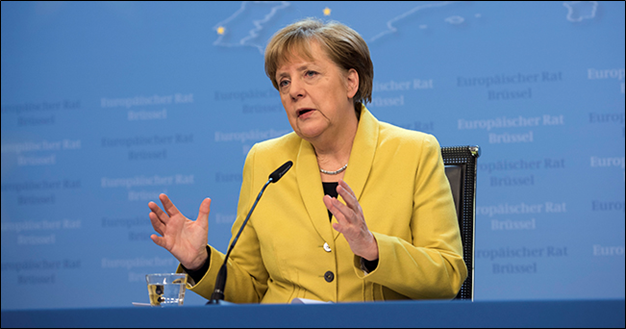By Natalia Castro
Since the Islamic State (ISIS) began ravaging the Middle East, Syrian refugees have flooded into Europe through Turkey and the Greek islands. German Chancellor Angel Merkel has led the refugee reallocation effort; however, with more than a million migrants and refugees crossing into Europe in 2015, Eastern Mediterranean nations are seeking answers to overpopulation, cultural clashes, and the inevitable possibility of terror entering their borders. While Merkel avoids these question, nations are looking to the “Brexit” model for opportunity.
Merkel has found no solution to the wave of terror that has followed this mass migration but rather chooses to focus on the overarching refugee resettlement problems. Merkel has led the EU into adopting a quota system which will ensure each European state provides a location for refugees, despite individual burdens attached to their acceptance.
While Merkel uses her power as the defacto, unelected leader of the EU to attempt to convince other European nations to adopt the quota system, many national leaders and citizens are against the initiative due to clear security risks.
Polish Foreign Minister Witold Wszczykowski told Deutsche Welle in an Aug. 2016 interview that the “forced relocation” of refugees ignores the individual needs of nations in order to promote German dominance. He states “”I believe that taking in refugees and migrants should be determined by security, job market and social policy of a specific country, not everybody in Europe can afford the policy suggested by Germany.”
Poland is not alone in their plight; Hungary, The Czech Republic and Slovakia are expected to join the protest of the refugee quota system on Sept. 16 at the EU summit discussing immigration among other issues.
These countries are asking for a solution to ISIS so that Syrian people can live in their home country in peace, while Merkel’s approach only provides mandates which diminish these countries sovereignty and security.
However, Merkel is not just ignoring the needs of these countries, she is ignoring the voices of her own people terrified of the terrorism she is allowing. Germany has accepted the most refugees, which is why it is no surprise that a Deutsche Welle poll conducted on Aug. 18 found that 58 percent of respondents believe “there will be more terror attacks in Germany” resulting from Merkel’s migration policies.
And somewhat ironically, Germany’s policies threaten the existence of the EU itself, as nations look at Great Britain’s decision to sever ties with the German dominated confederation and consider if that might be the right answer for their national future as well.
The Netherlands, France, Italy, Austria, Sweden, and Denmark are all experiencing a growing internal desire for referendums that would separate them from what has become the organization of Angela Merkel. The Guardian of June 2016, just after the Brexit was announced, reported that even within Germany, rightwing populist parties have advocated the people vote on their own independence from the EU. Again, Merkel must deal with international and domestic discontent.
The EU depends upon the unity and transparency of the nations it encompasses. If immigration policy continues to fracture it, there may well not be any place for the unified Europe dream.
As other nations and Merkel’s own people demand security in the face of terror, her response is to force nations, against their peoples will, to accept more refugees than ever before. These policies have turned formerly autonomous countries into Germanys human parking lots and pushed them toward independence while ensuring that in order to invade a continent, ISIS simply has to send people to Germany’s open arms and wait for their distribution across the continent.
The question that is increasingly being asked across Europe is whether the EU can survive Angela Merkel, and the answer is becoming more uncertain every day.
Natalia Castro is a contributing editor at Americans for Limited Government.







